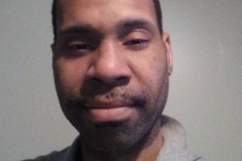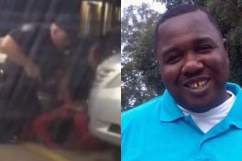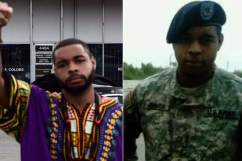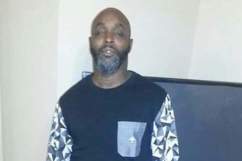A trauma surgeon, Dr. Brian H. Williams, who treated officers during the attack on police Thursday night in Dallas talked emotionally about the impact the shootings had on him, as well as the police killings of black men in Louisiana and Minnesota.
Williams, 47, spoke at a press conference Monday with other doctors and hospital staff at Parkland Memorial Hospital in Dallas, where several officers were treated Thursday. You can watch video of Williams’ statements above.
“It’s much more complicated for me personally because it’s not just about that one night, it’s about the racial undertones that impact all of this,” Williams, who is also an Air Force veteran, said of the emotional impact of the shooting. “So it began long before those cops came through the door that evening. I don’t know what I’m going to do about that, but right now it is certainly a struggle.”
Five police officers were killed and nine others were wounded, along with two civilians, during the attack by a lone gunman at the end of a rally against police violence in Dallas. The gunman, Micah Xavier Johnson, told police he was angry about recent police killings and was targeting officers, especially white officers, Police Chief David Brown said. Johnson was killed by police using explosives detonated by a robot after a lengthy standoff, Brown said.
The shootings in Dallas came two days after Alton Sterling was killed by police in Baton Rouge, Louisiana, and one day after Philando Castile was fatally shot by an officer in Falcon Heights, Minnesota. Parts of both of those incidents were caught on video and sparked protests around the country.
Here’s what you need to know about Williams and his statement:
1. ‘This Killing, It Has to Stop … We Have to Come Together & End All This’
Dr. Brian H. Williams spoke about the personal impact the Dallas shootings, and the shootings in Minnesota and Louisiana, had on him as a black man and surgeon:
First and foremost I stand with the Dallas Police Department. I stand with law enforcement all over this country. This experience has been very personal for me, in a turning point in my life. There was the added dynamic of officers being shot, we routinely care for multiple gunshot victims, but the preceding days of more black men dying at the hands of police officers affected me. I think the reasons are obvious, I fit that demographic of individuals. But I abhor what has been done to these officers and I grieve with their families.
Williams said he understands the “anger and the frustration and the distrust of law enforcement.”
He later elaborated on his feelings:
There is this dichotomy where I am standing with law enforcement, but I also personally feel and understand that angst that comes when you cross the paths of an officer in uniform and you are fearing for your safety. I’ve been there and understand that. But that does not condone disrespecting or killing police officers. It is something I am struggling with constantly and I truly do not know what I’m doing next.
Williams said the officers are not the problem.
“The problem is the lack of open discussions about the impact of race relations in this country. And this killing, it has to stop,” Williams said. “Black men dying and being forgotten, people retaliating against the people who are sworn to defend us. We have to come together and end all this.”
2. Williams Said the Fact He Wasn’t Able to Save Some of the Officers Weighs on His Mind Constantly
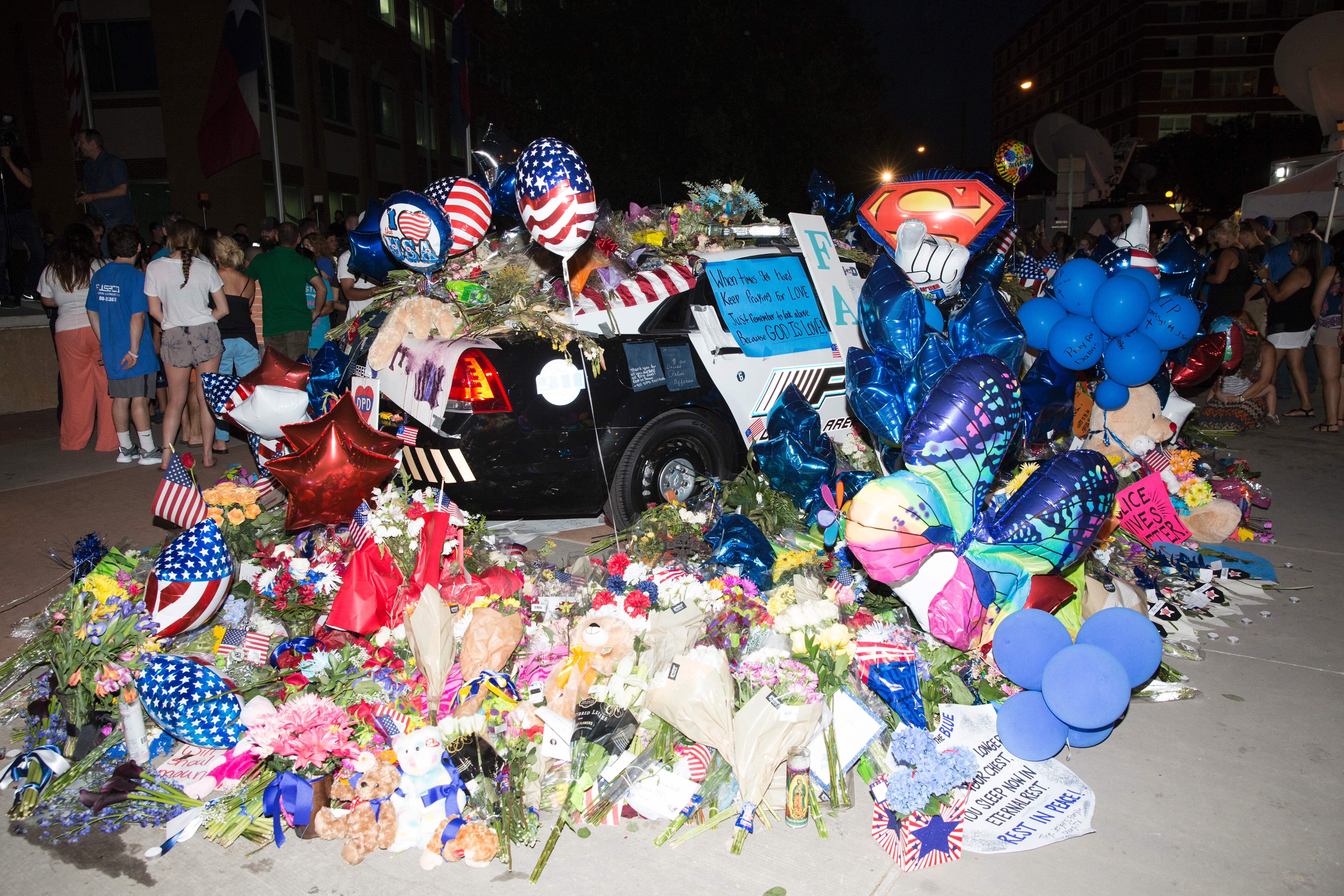
Flower, cards, balloons, and candles pile on top of police cruisers outside the Police Headquarters memorial for officers killed in the recent sniper attack in Dallas, Texas on July 10, 2016. (Getty)
Williams told reporters, “I think about it everyday, that I was unable to save those cops when they came here that night. It weighs on my mind constantly.”
He said he wants time off and is tired, but he can’t compare his problems to those who have lost loved ones.
“This is one of the most difficult times of my life, but I recognize whatever I’m going through right now compared to the families of the officers and the victims killed last week is nothing,” Williams said.
3. He Said He Wants His Daughter to See Him Interacting With Police in a Positive Way
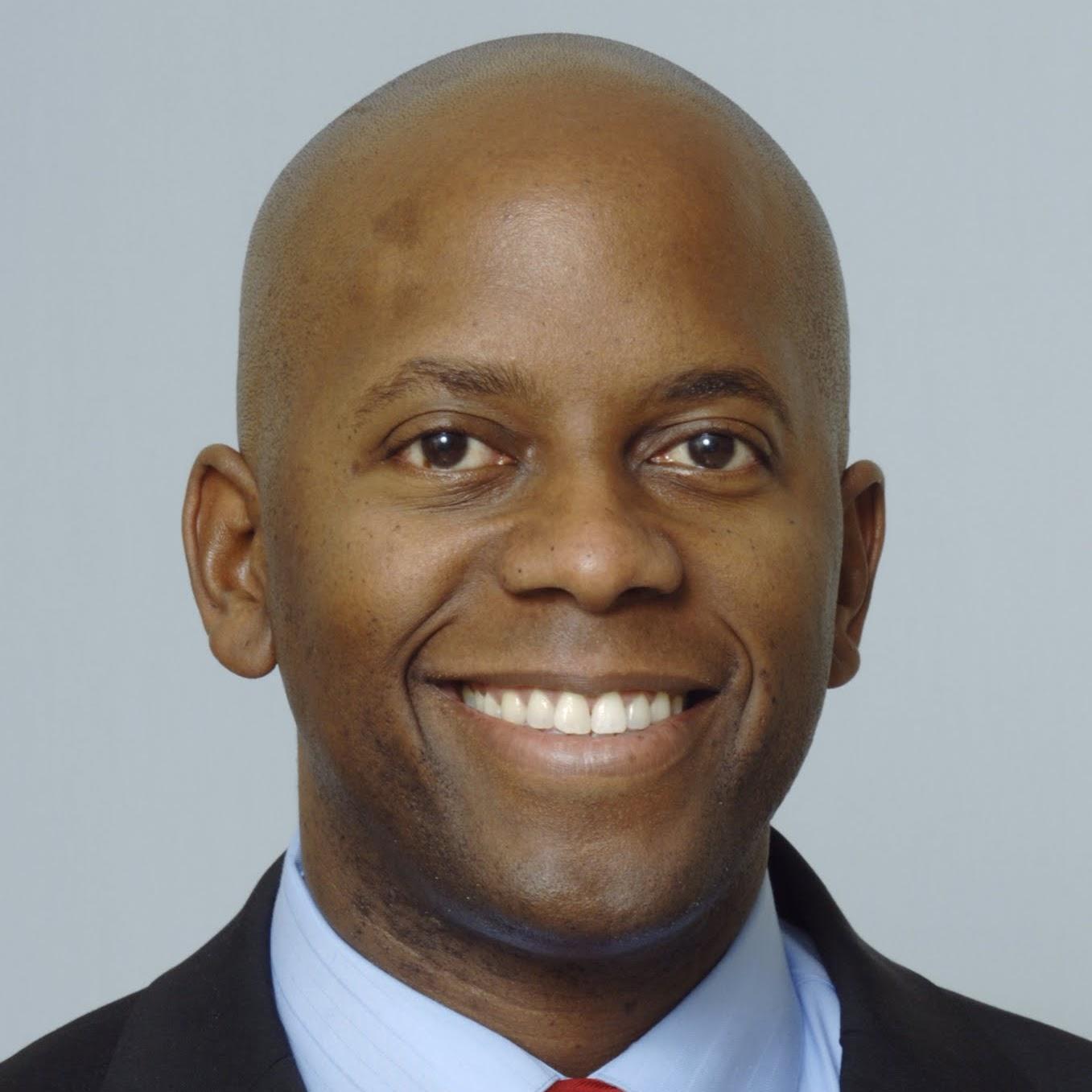
Dr. Brian H. Williams. (Twitter)
Williams said he has a daughter and he wants her to see him interacting with police officers in a positive way.
“I do simple things while I’m out in public,” Williams said. “When I see officers eating at a restaurant, I pick up their tab. I even, one time a year or two ago, I bought one of the Dallas PD officers some ice cream while I was out with my daughter getting ice cream.”
“I want my daughter to see me interacting with police that way so she doesn’t grow up with the same burden that I carry, when it comes to interacting with law enforcement,” Williams said. “And I want the Dallas Police to also see me, a black man, and understand that I support you, I will defend you and I will care for you. That doesn’t mean that I do not fear you. That doesn’t mean if you approach me, I will not immediately have a visceral reaction and start worrying for my personal safety. But I will control that the best I can and not that let impact how I deal with law enforcement.”
4. He Is a Graduate of the Air Force Academy & Was an Aeronautical Engineer Before Becoming a Surgeon
Williams graduated from the U.S. Air Force Academy in 1991.
He then served in the U.S. Air Force from 1991 to 1997 as an aeronautical engineer before pursuing a career as a surgeon, according to his Linkedin page.
He went to the University of South Florida Medical School from 1997 to 2001, before his residency in general surgery at Harvard Medical School and Brigham and Women’s Hospital from 2001 to 2008.
He also completed a fellowship program in trauma and surgical critical care at Emory University School of Medicine from 2008 to 2010.
Williams has been at Parkland as an acute care surgeon since 2010. He is also an assistant professor of surgery at the University of Texas Southwestern Medical Center.
5. A Trauma Surgeon Who Works With the Police SWAT Team Says ‘We All Look the Same Inside’
Dr. Alex Eastman, a trauma surgeon who is the medical director at the Rees-Jones Trauma Center at Parkland Memorial Hospital, works directly with the Dallas SWAT team in the field as a sworn officer. He also spoke about the shooting at the Monday press conference:
Right now there are people here that need our help. This city needs us to help pressing forward. I think what Brian said is exactly right. This is a time for all of us to come together, because the path forward from here doesn’t involve focusing on how different we are. The path forward involves focusing on how when we have to do what we do, and when you look down on someone who you are exploring in the operating room, we all look the same on the inside, there’s do difference.
Captain Dan Birbeck, who commands the officers in the Dallas Hospital District of the city, said Williams got up and spoke during a critical incident debriefing held after the shooting.
“As a law enforcement officer, I understand what he’s saying,” Birbeck told reporters. “But one of things that stood out for me that made me respect Dr. Williams so much was, he said that when those three police officers came through the door, the initial ones, that not even for a second did he think about anything that was going on or that it compromised him … That for me was very reassuring that he was willing to set aside any personal feelings that he had.”
Eastman said he is close with Williams.
“As I’ve watched us all struggle through this, Brian and I have had some very long hugs and the beginnings of some really challenging conversations about how we move forward from here,” Eastman said. “And I think it’s interesting that two guys who truly love each other … have such very different takes on how this all comes together. But I think what’s been awesome for me, is both of our resolves to move the discussion forward and help turn what is truly a senseless act into something that helps us as a city, helps us as a family and helps us as a country move forward from here.”
